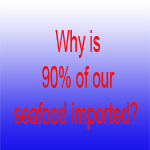
 |
 |
| The Associated Press
September 13, 1998 Bastrop, La. Herbert and Charlotte Thomas' house sits near the bank of the beautiful Bonne Idee, a 57-mile bayou that snakes its way down the eastern part of Morehouse Parish. But now when the Thomases look at the Bonne Idee, they see more weeds than water, and they say the water hyacinth is choking the life out of the bayou, ruining the fishing and lowering property values. The problem is the same for residents on Horseshoe Lake, in the eastern part of Morehouse. So, residents have formed the Save Our Waterways Committee to get the attention of officials. "If we don't stick together, we'd just as well hang it up," Herbert Thomas said. SOW membership has grown to more than 300 families in less than a month. Malcolm Leatherman of Alexandria, a fisheries biologist in charge of chemical spraying in northern Louisiana for the Department of Wildlife and Fisheries, said maintenance spraying is prohibited because Morehouse Parish is a cotton-growing parish. The herbicide 2-4D is the most effective chemical to use on the water hyacinth, but state Department of Agriculture and Forestry has a ban on its use from May 15 to Sept. 15 during cotton growing season, he said. Another herbicide, Rodeo, can be used, but is cost prohibitive, Leatherman said. Manpower constraints have also hindered spraying. "It's not us not wanting to do the work, but the problem you run into is that if you can't do maintenance control during the growing season you get so far behind you almost cannot catch up with the limited crew situation that we've got," Leatherman said. Wildlife and Fisheries owns a mud boat in southern Louisiana that is going to be brought up to cut up a matte of water hyacinths that has one section of Bonne Idee impassable, Leatherman said. After it is cut up into pieces, it will be chemically treated. At this point during the hyacinth growing season, spraying and killing all of it at one time could be devastating to the fish population. As the hyacinth decomposes, it takes all the available oxygen out of the water "and you would kill every fish in that section, and then those folks would be screaming bloody murder about the stench, and then you'd have a sterile lake with no fish," said state Sen. Robert Barham of Oak Ridge. Barham agreed Rodeo, the aquatic version of Roundup, would be cost prohibitive. "The chemical cost alone for Rodeo is $ 100 an acre," he said. With the hyacinths as bad as they are, Barham said two sprayings would be required. Water hyacinth is a statewide problem and getting the necessary funding to treat it has not been a top priority, said Barham. The senator said the outcry by SOW members may help in getting additional money out of the Legislature, but residents may want to place barriers into the stream to keep the hyacinth out. He said residents may also want to have their own limited spray program. "We will try to get help from the state side. I know that ideally they want the state to do it all, but I don't see us being able to do it all," Barham said. Barham also said that farmers using water for irrigation have caused a low water level that contributes to the growth of the hyacinth. "The deeper the water the better control you have on this stuff," he said. However, there are few water use laws in the state. "The only water use law that I'm aware of is that Wildlife and Fisheries has the authority to stop someone from pumping water out of a stream if they believe it will impact the fisheries," Barham said. "They are very hesitant to use that (law). We've never in Louisiana told someone who is a farmer to stop pumping water out of a stream." |